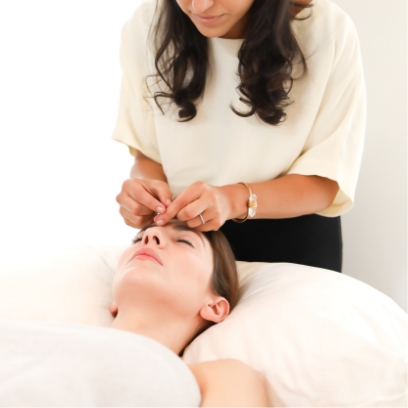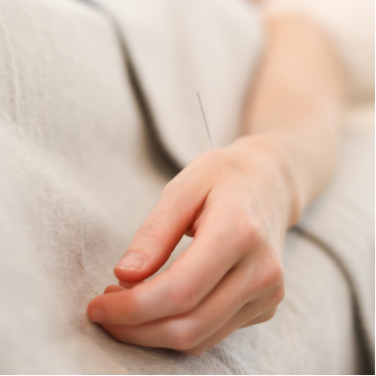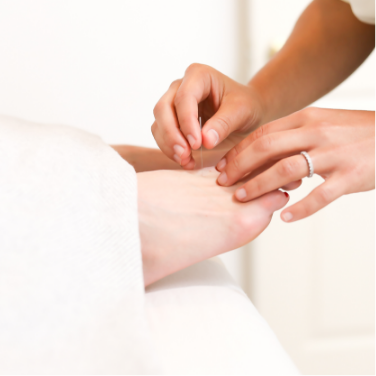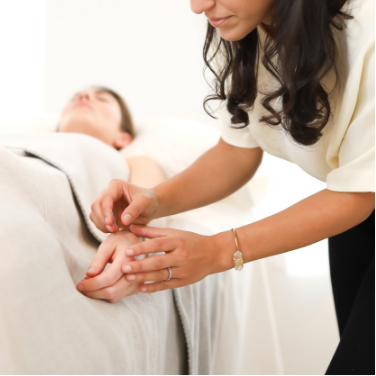Why use acupuncture?
Acupuncture is a traditional, holistic medicine that can help decrease pain and restore function. Modern research has demonstrated acupuncture’s effects on the nervous system, endocrine and immune systems, cardiovascular system, and digestive system. By stimulating specific points on the body, acupuncture can treat a wide variety of conditions and help stimulate healing, improve nerve function, regulate nervous system balance, increase peripheral vascular circulation, regulate digestion and improve sleep. Today, acupuncture is one of the most popular practices of integrative medicine in the West.
While acupuncture is amazing at treating many conditions, in the hands of a well trained practitioner like Aetherium founder Dr. Natalie Grigorian, it has many broader applications. Aetherium has been recognized as one of the best acupuncture clinics in Washington, DC.

Does acupuncture hurt?
Although needles are used in acupuncture, treatments are relatively pain-free. Unlike hypodermic needles, acupuncture needles are solid and thin (similar to the width of a hair strand). Our acupuncture needles are made from high quality surgical stainless steel that are disposed after each use ensuring clean-needle technique.
One of the most popular uses of acupuncture is to reduce chronic pain throughout the body in a natural way. Many of our patients have found that acupuncture helps reduce acute and chronic pain conditions, which ultimately helps reduce the need of medications.

How many treatments will I need?
The frequency and number of treatments differ from person to person. Some people experience dramatic relief in the first treatment. For complex or long-standing chronic conditions, two to three treatments per week for several months may be recommended. For acute problems, usually fewer visits are required, usually ten visits in total. An individualized treatment plan that includes the expected number of treatments will be discussed during your initial visit.

What conditions are commonly treated by acupuncture?
Research into acupuncture as a medical treatment has grown exponentially in the past 20 years, increasing at twice the rate of research into conventional biomedicine. Over this period, there have been over 13,000 studies conducted in 60 countries, including hundreds of meta-analyses summarizing effectiveness of acupuncture. Clinical studies on the benefits of acupuncture show that it successfully treats conditions ranging from musculoskeletal problems (back pain, neck pain, and others) to nausea, migraine headache, anxiety, depression, insomnia, and infertility.

What is the science behind acupuncture?
Acupuncture originated in China around 3,500 years ago and remains one of the oldest, most commonly used systems of healing in the world. Modern science has started to demonstrated the healing mechanisms of acupuncture. Research has shown:
- Acupuncture stimulates nerve fibers in the skin and muscles, which in turn sends signals to the brain to release chemicals called neurotransmitters and endorphins. These chemicals can reduce pain and improve overall well-being.
- MRI readings demonstrate that acupuncture prompts observable changes in the brain.
- Acupuncture releases hormones and neurotransmitters that regulate various bodily functions, including pain, inflammation, and the immune system.
- Doppler ultrasound shows that acupuncture increases blood flow and circulation.
- Thermal imaging reveals that acupuncture reduces inflammation.
How does acupuncture help with chronic pain?
Acupuncture has long been recognized as an effective treatment for chronic pain and other health problems associated with inflammation. Multiple studies have found that acupuncture helps reduce chronic pain by:
1) Increasing Blood Flow & Oxygen. Healthy blood circulation is a vital component of life. Acupuncture has been shown to provide pain relief by improving blood flow, which boosts oxygenation in the body. The increase of blood flow and oxygen in tissues helps to relax muscles, relieve pain, improve metabolic waste throughout the body, and promote system-wide balance for better health.
2) Promoting Pain Inhibition. Pain can trigger central amplification called central sensitization, which ultimately results in increased sensitivity to feeling pain and an extreme response to pain. Many studies have shown that acupuncture enhances the descending inhibitory effect and modulates the feeling of pain, thus providing pain relief.
3) Fighting Inflammation. Acupuncture has been increasingly embraced in Western medicine as a potential treatment for inflammation. Research has shown that acupuncture can reduce systemic inflammatory markers by activating the vagal-adrenal axis, a pathway wherein the vagus nerve signals the adrenal glands to release dopamine.
4) Releasing Neurochemicals. Research shows that acupuncture triggers the nervous system to release beta-endorphins, the “feel good chemicals.” These are important in pain management because they produce a morphine-like effect.

How does acupuncture help with fertility?
Acupuncture as a treatment for infertility shows great results both in man and women. Acupuncture can increase fertility, in both man and women, by reducing stress, increasing blood flow to the reproductive organs and balancing the endocrine system, according to several studies and medical research. A recent study found that acupuncture, when used in conjunction with Western fertility treatments, increases conception rates by 26%.
Patients are commonly treated for three to four months before progressing to insemination, in vitro fertilization (IVF), or donor-egg transfer. This pacing of treatment seems to have a therapeutic effect. In a study by Stener-Victorin et al from the Departments of Obstetrics and Gynecology Fertility Centre, Scandinavia and the University of Gothenburg, women are encouraged to receive acupuncture treatments pre and post embryo transfer.
Clinical observations from the Berkley Center for Reproductive Wellness suggest that the most effective fertility treatments involve a combination of acupuncture, herbal medicine, and traditional medicine. Conception may also occurs when acupuncture and herbal medicines are used without traditional medical interventions.